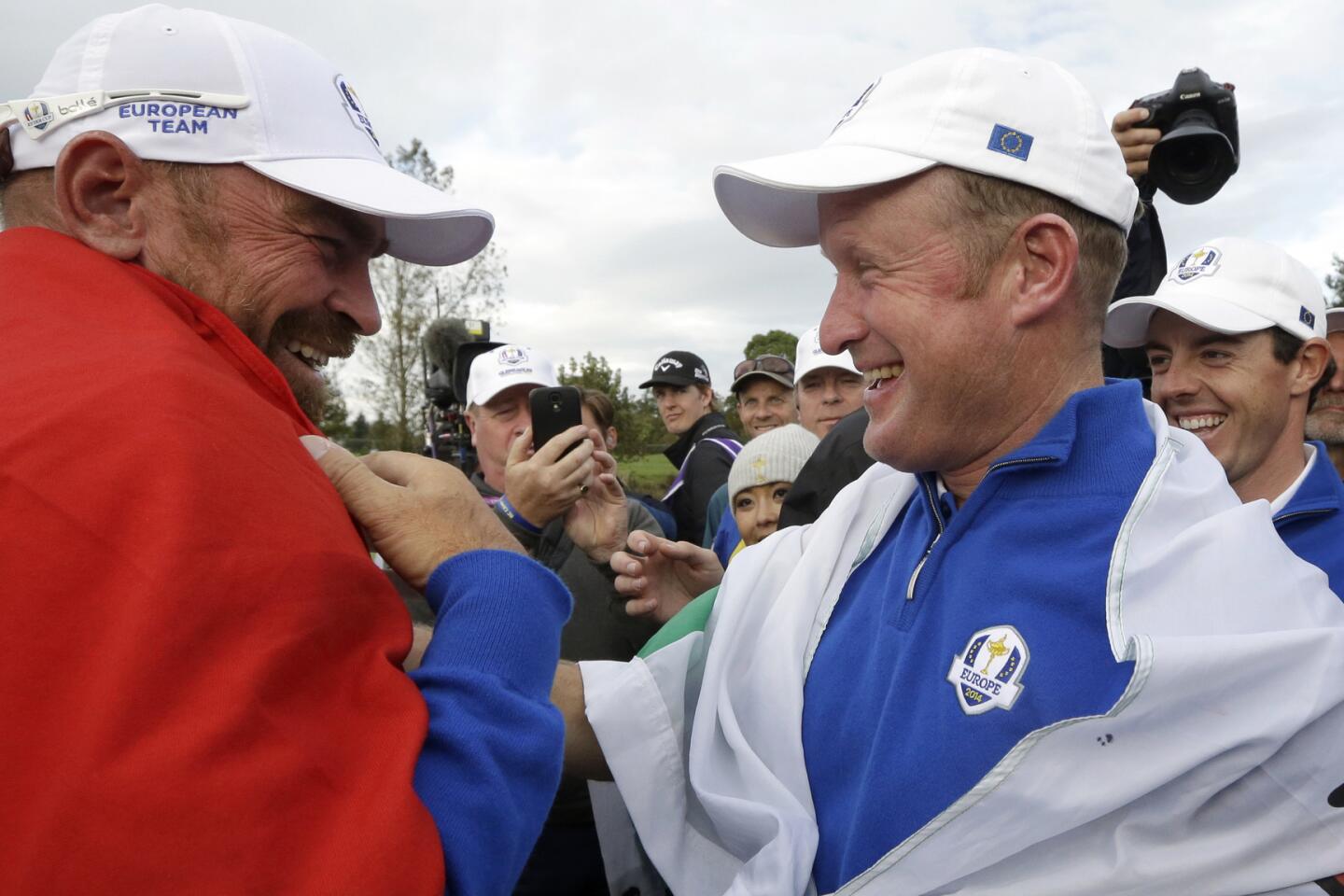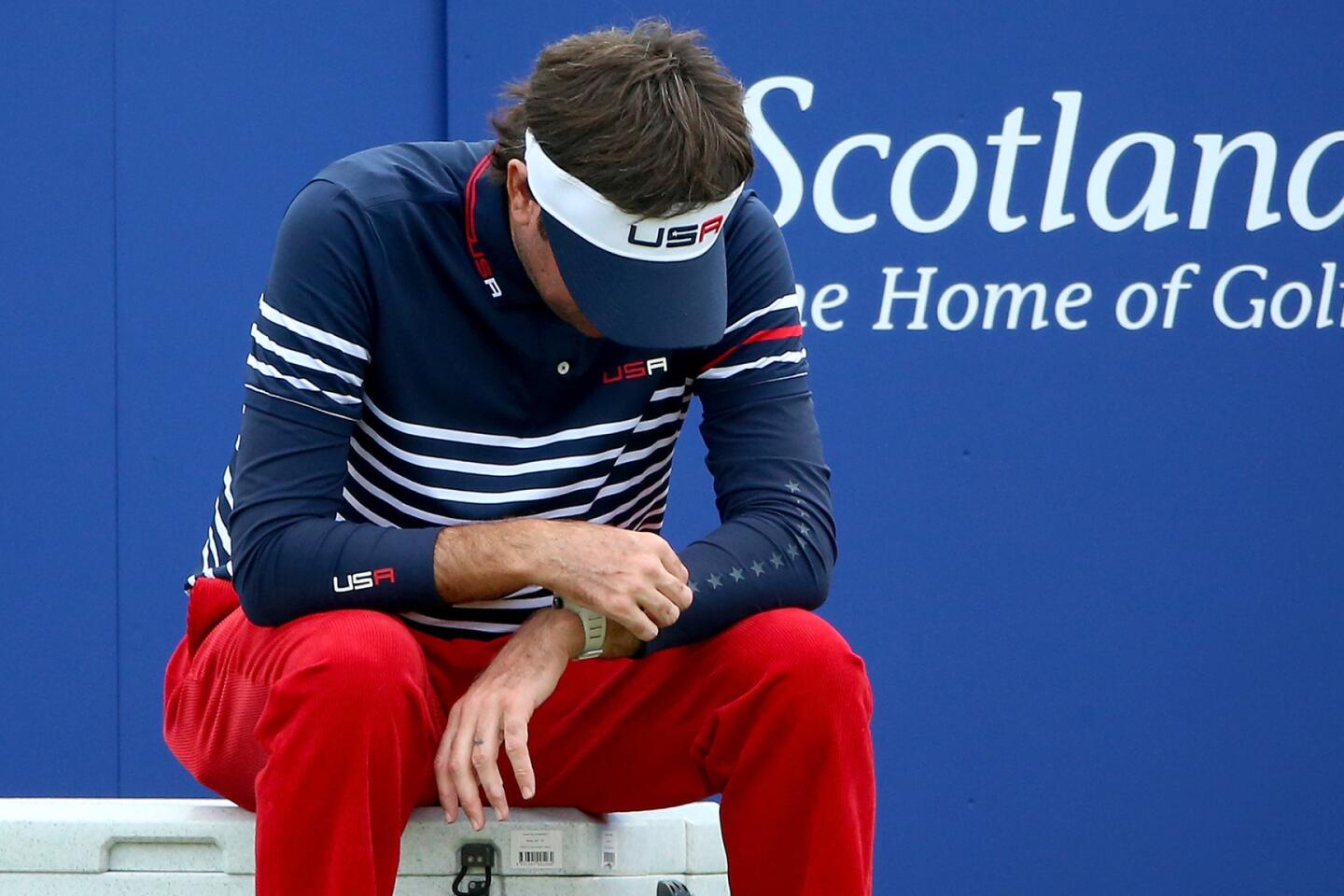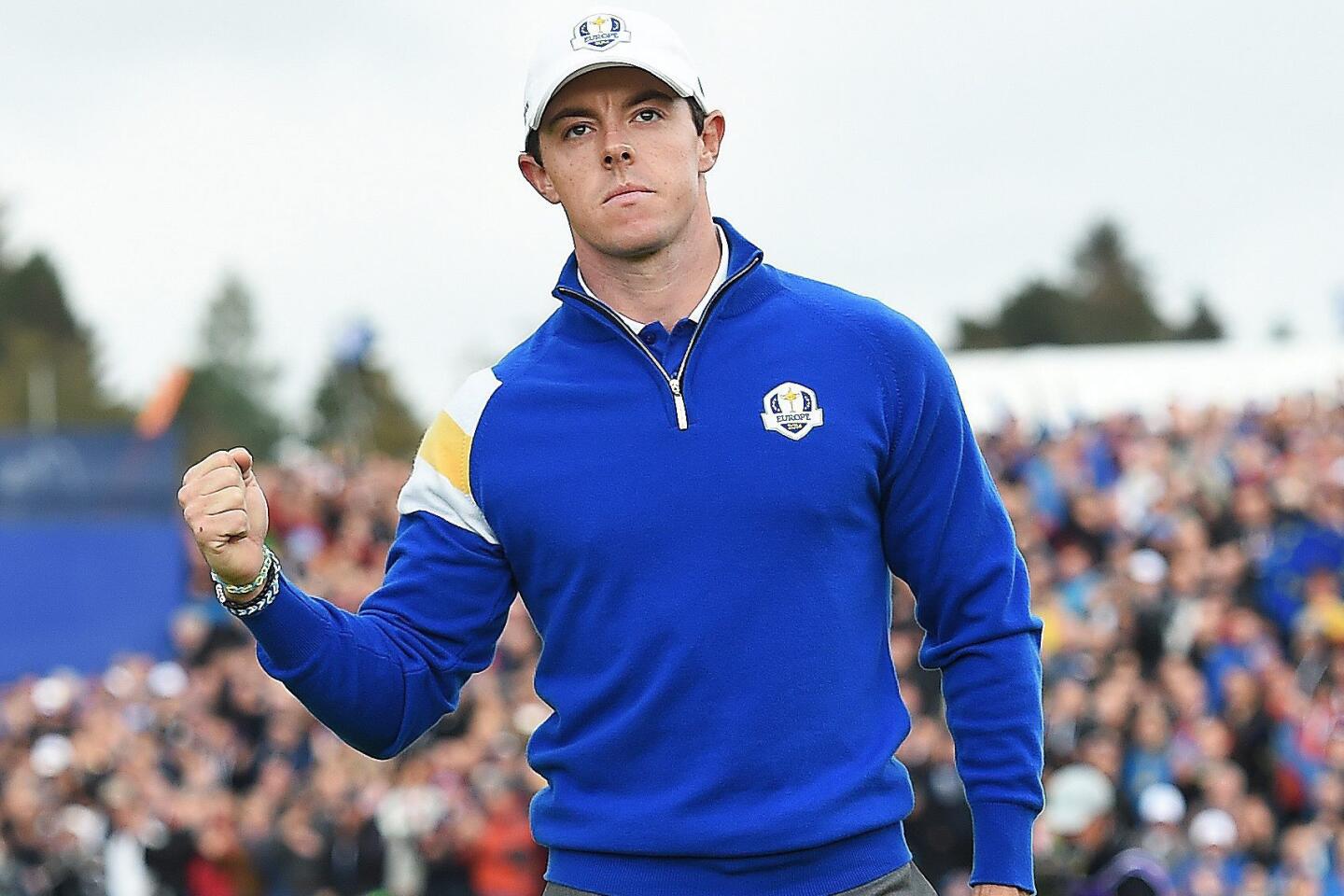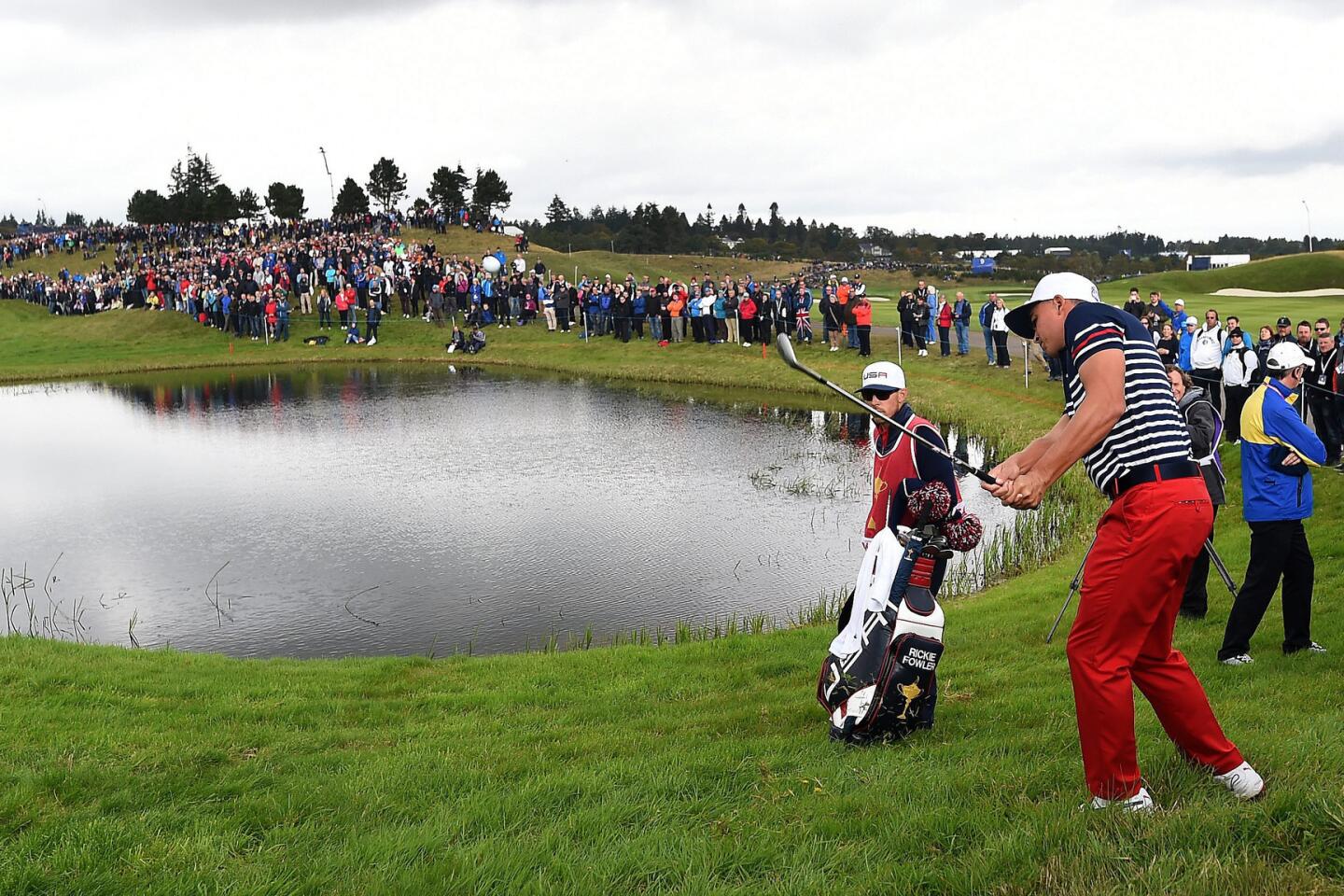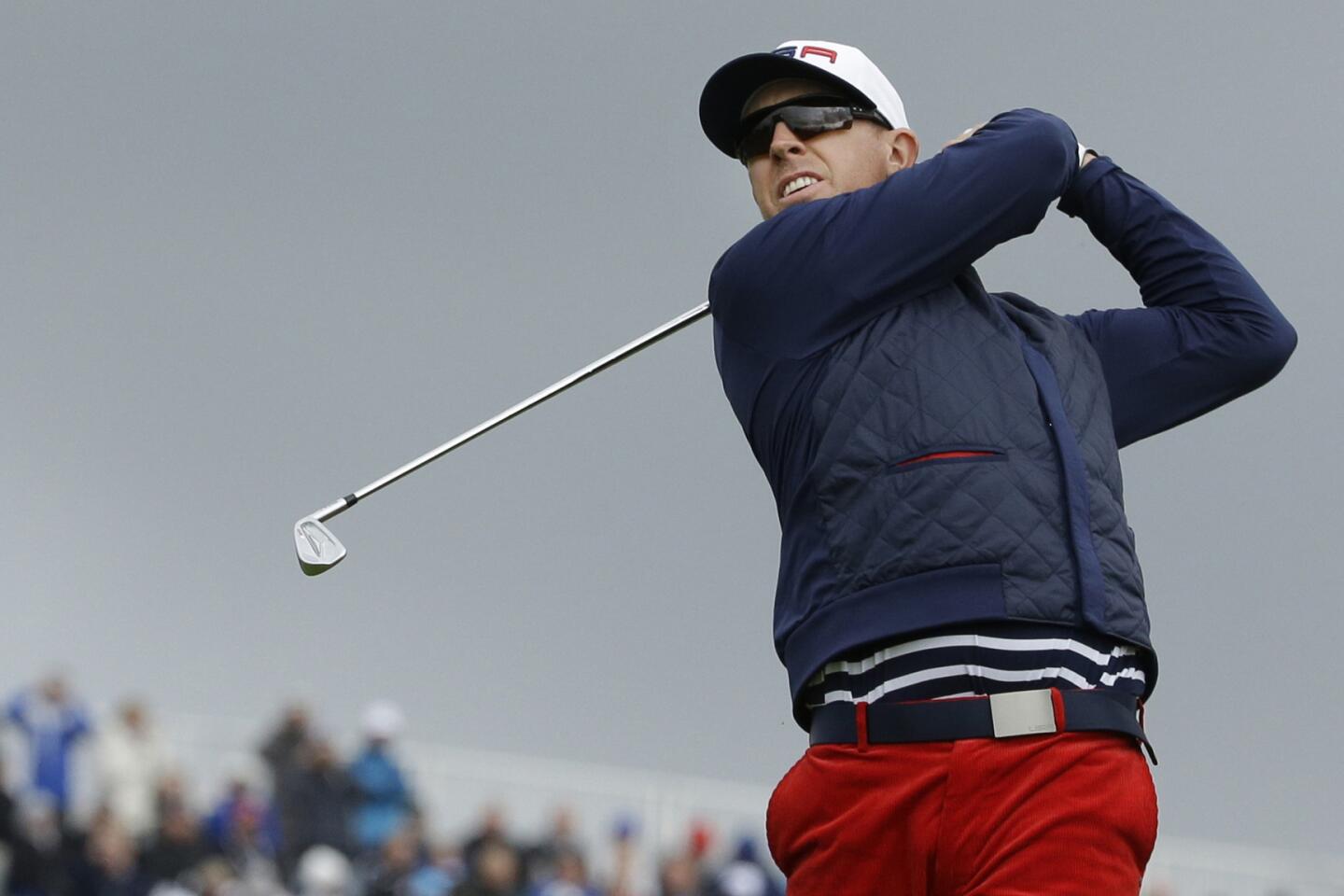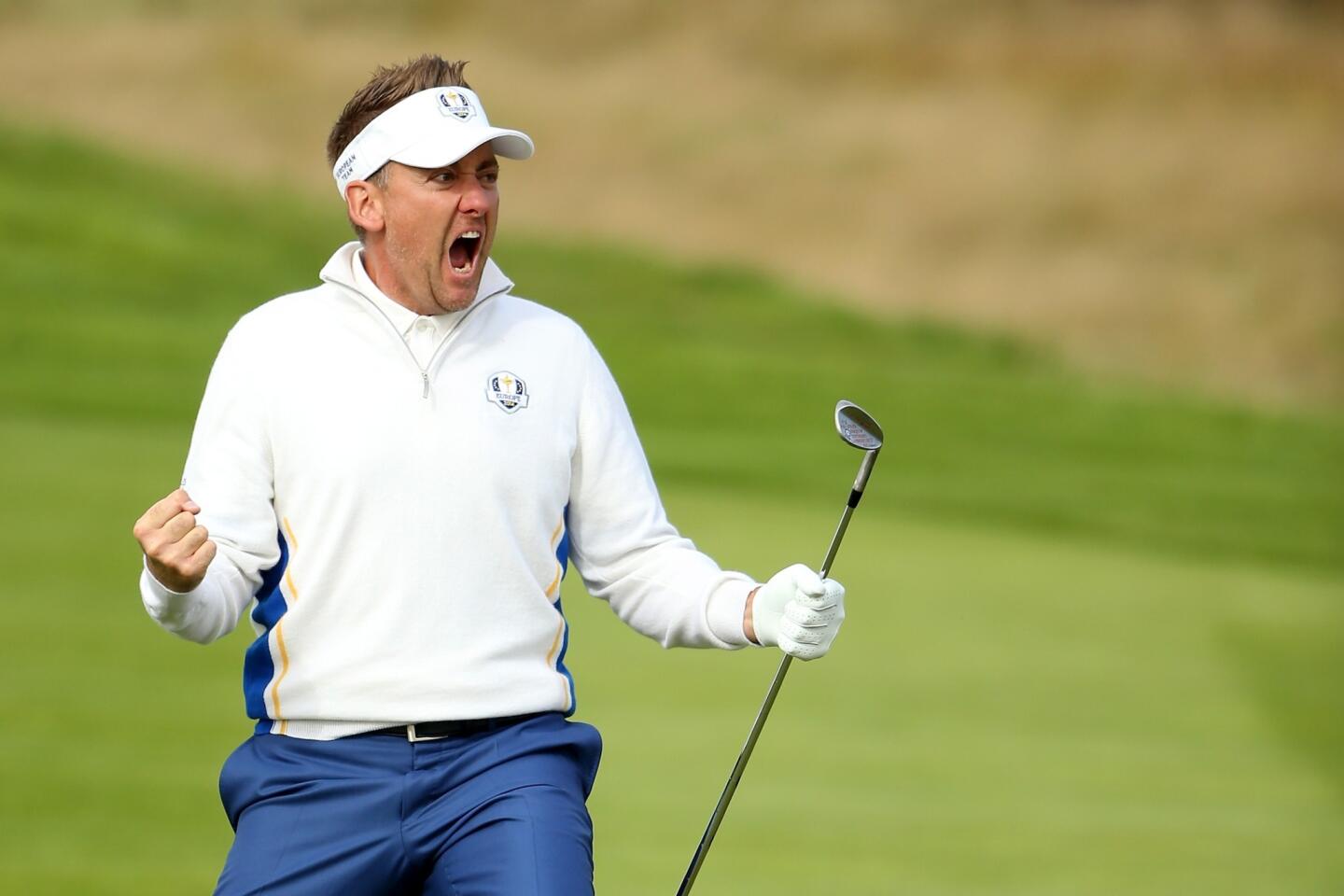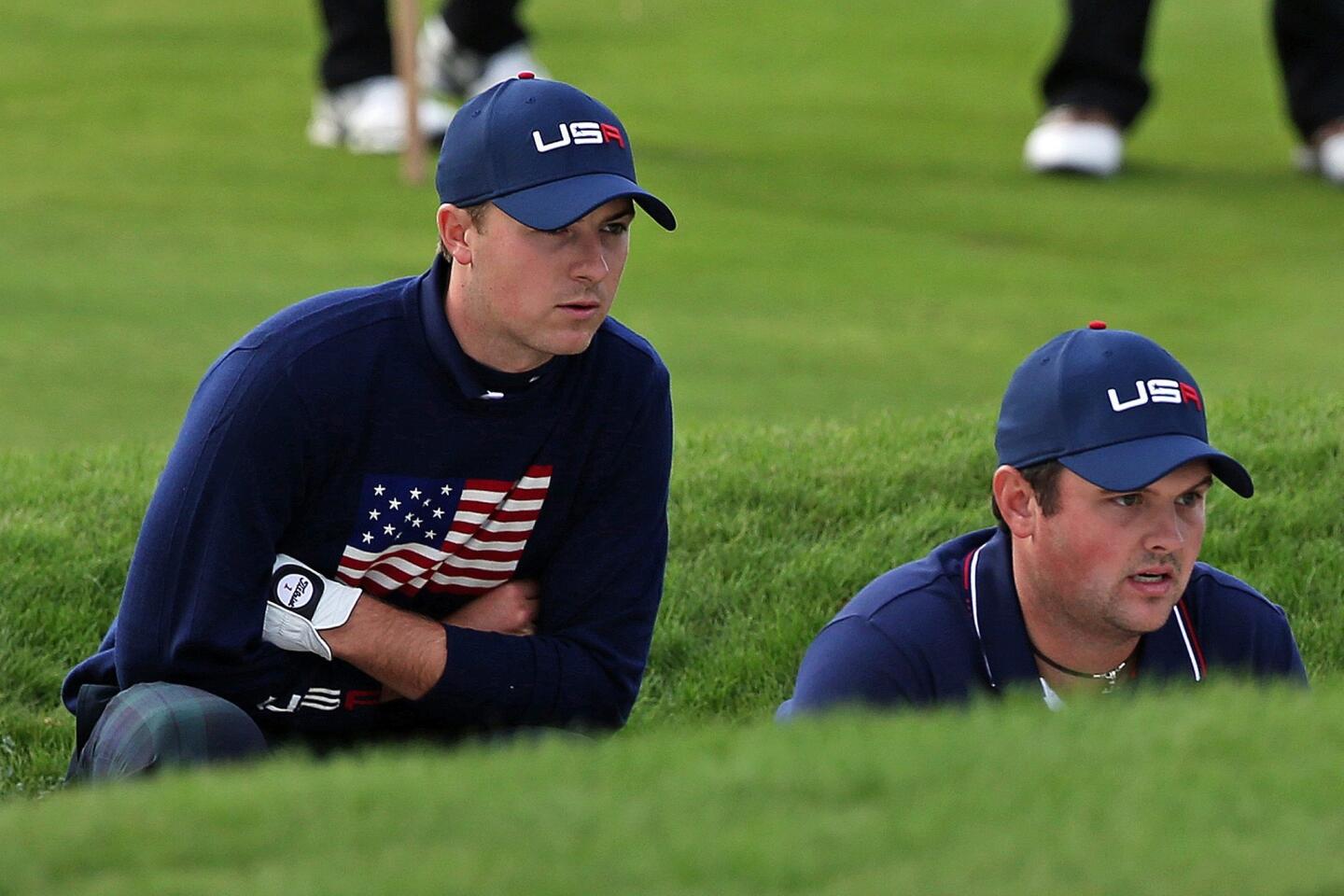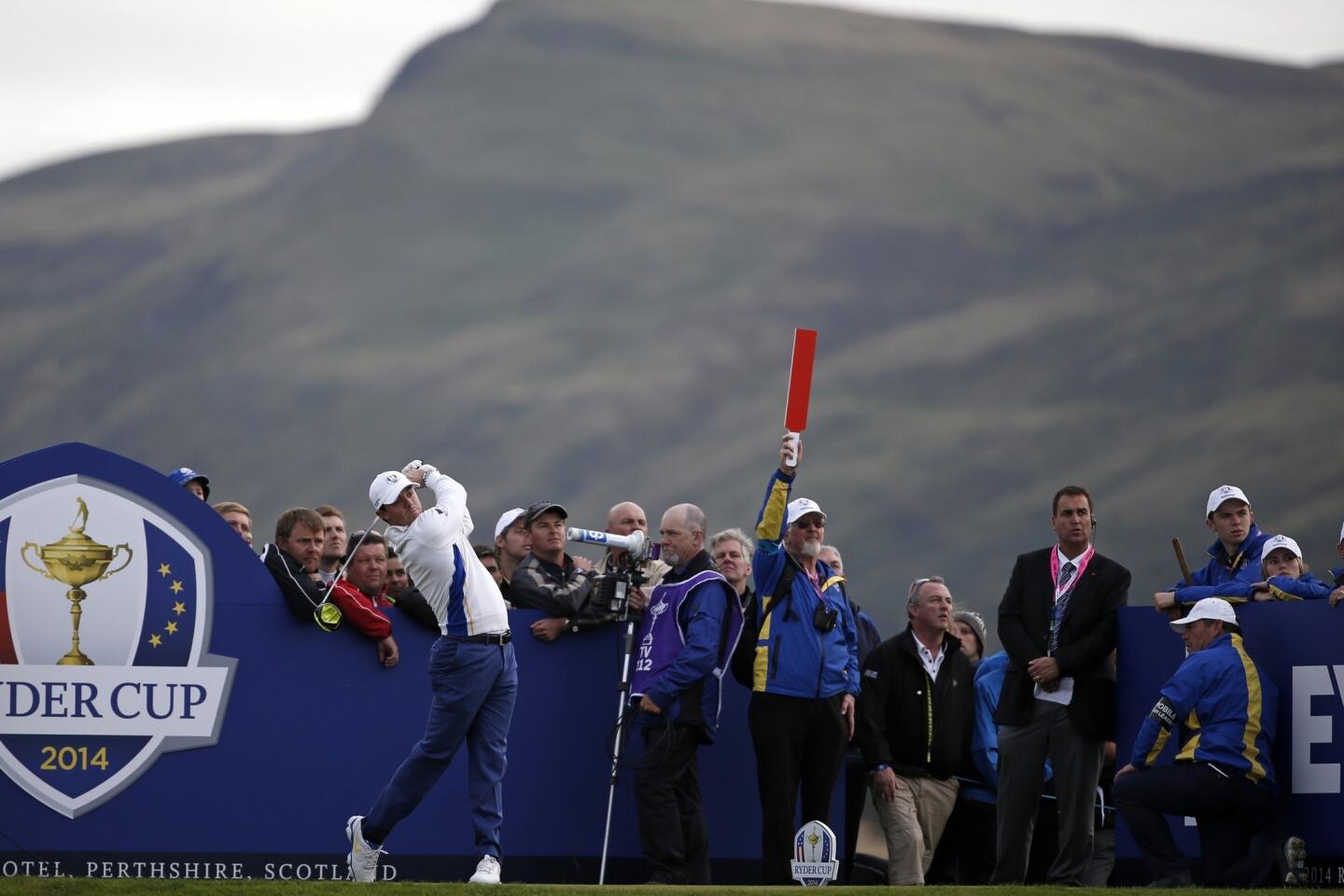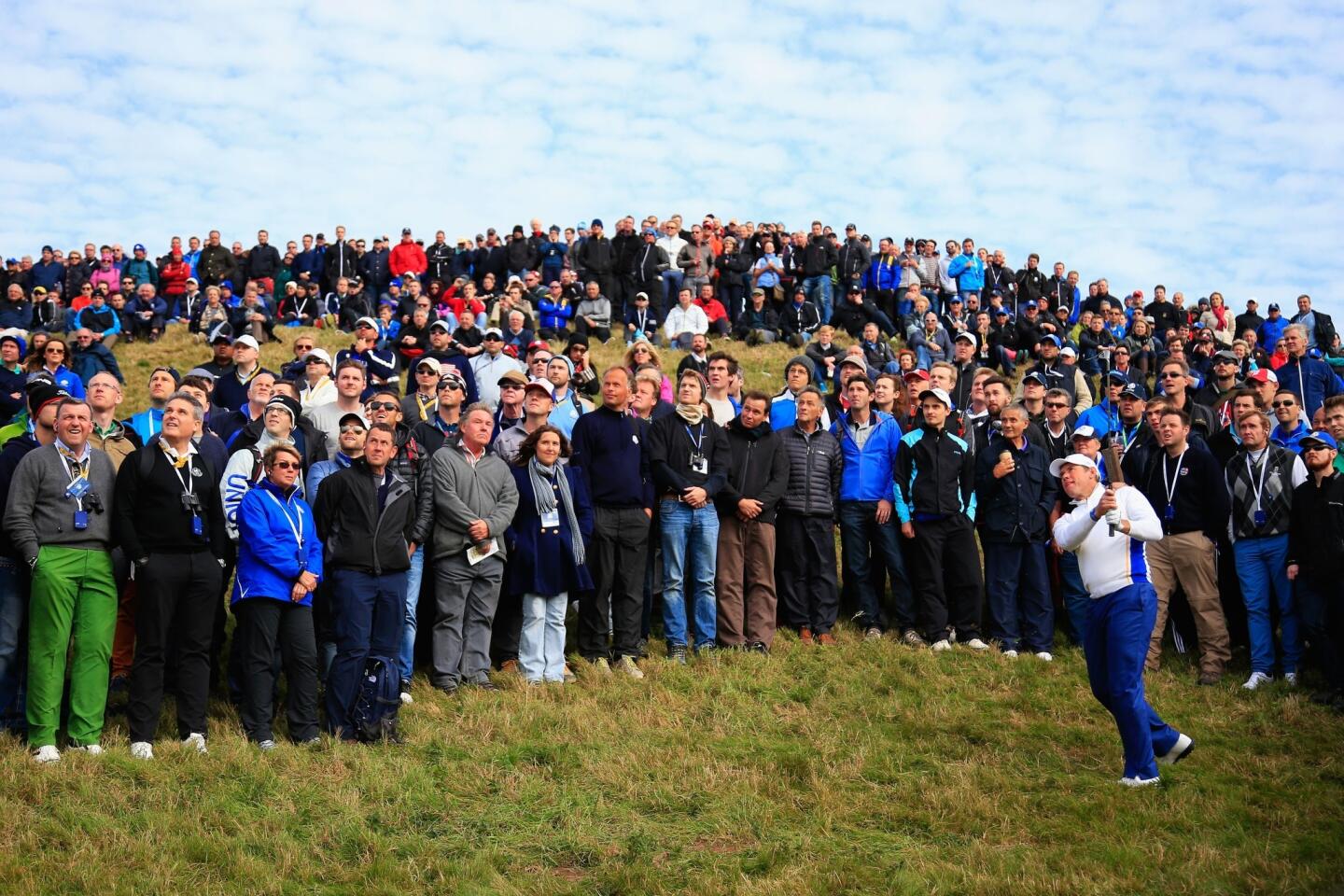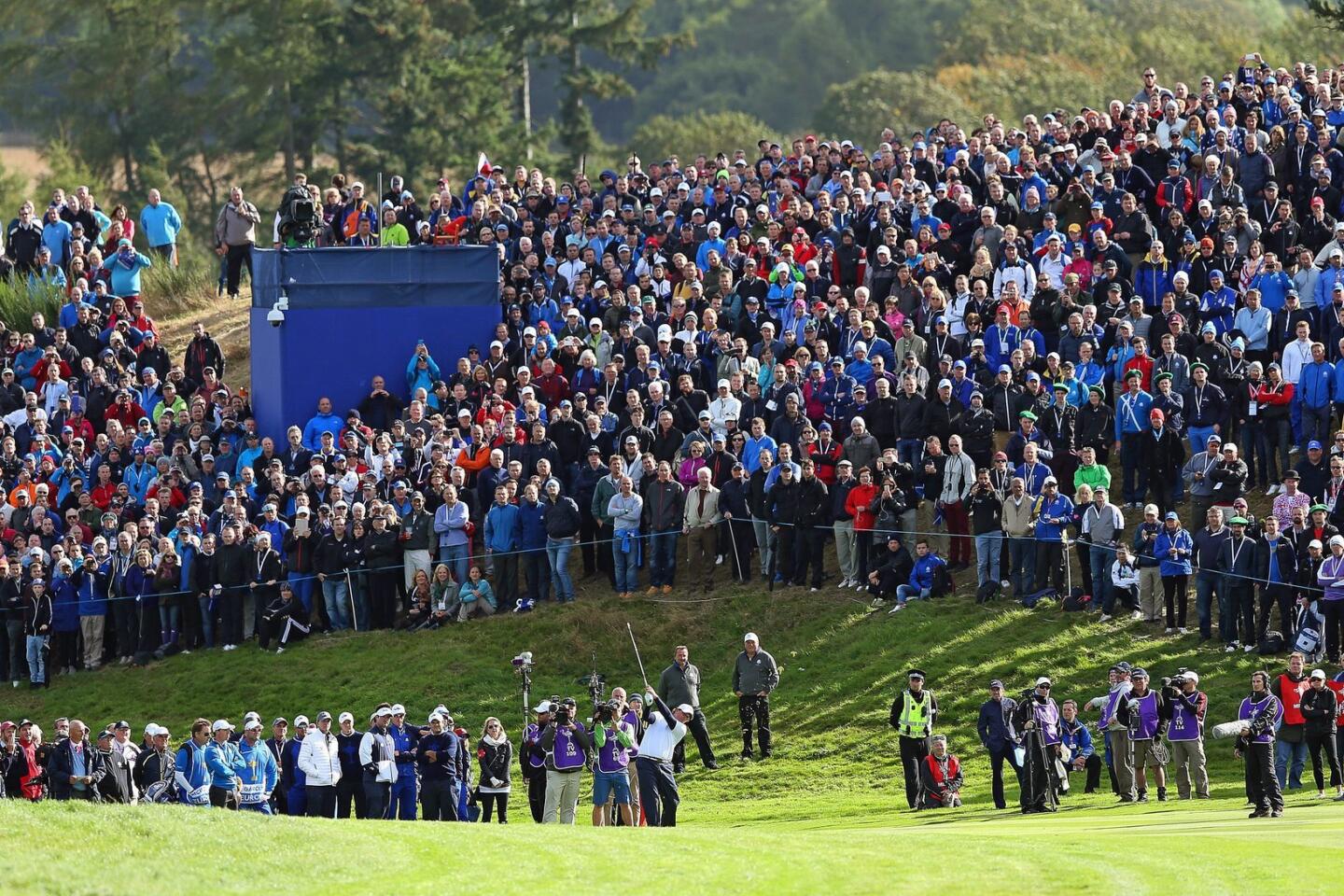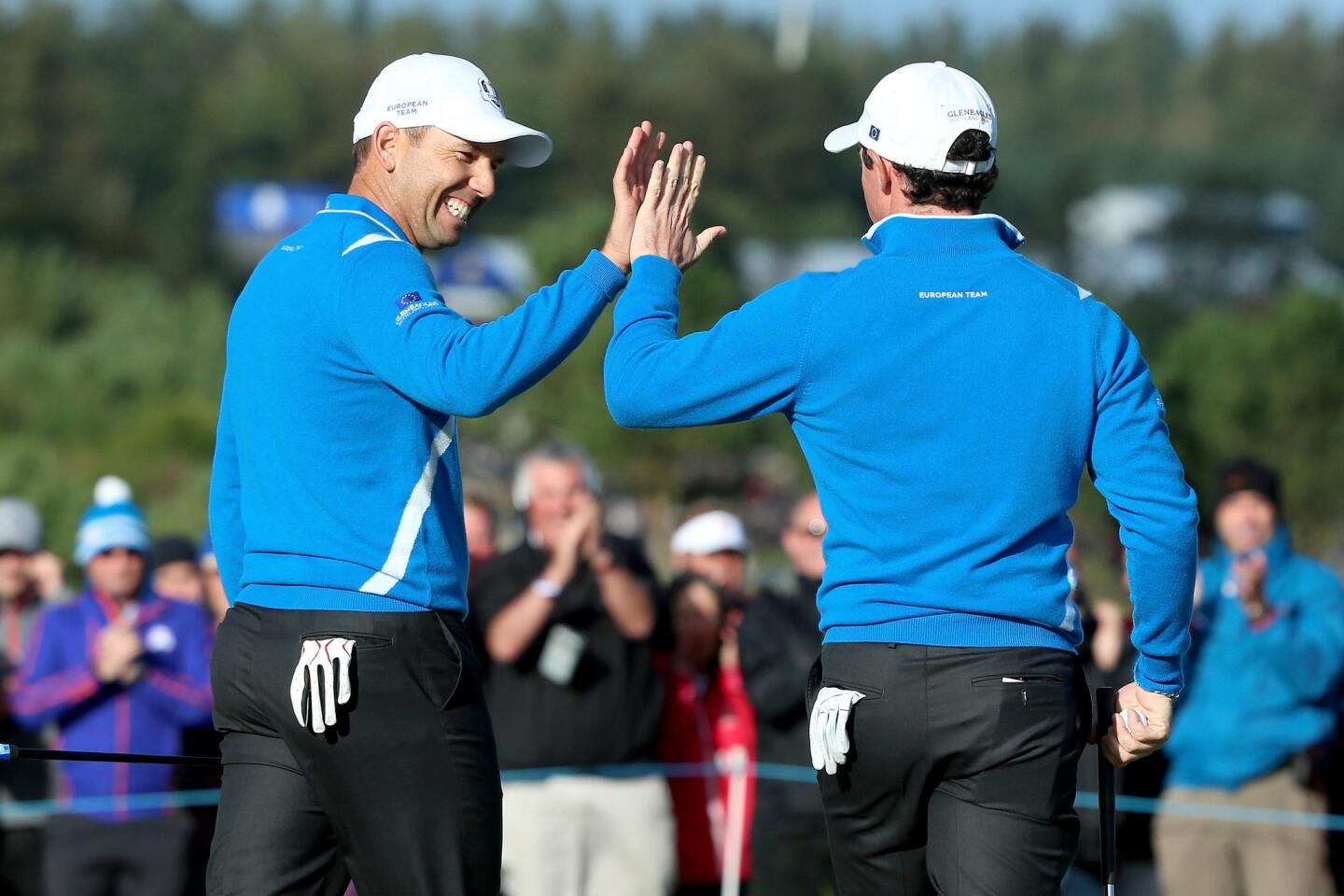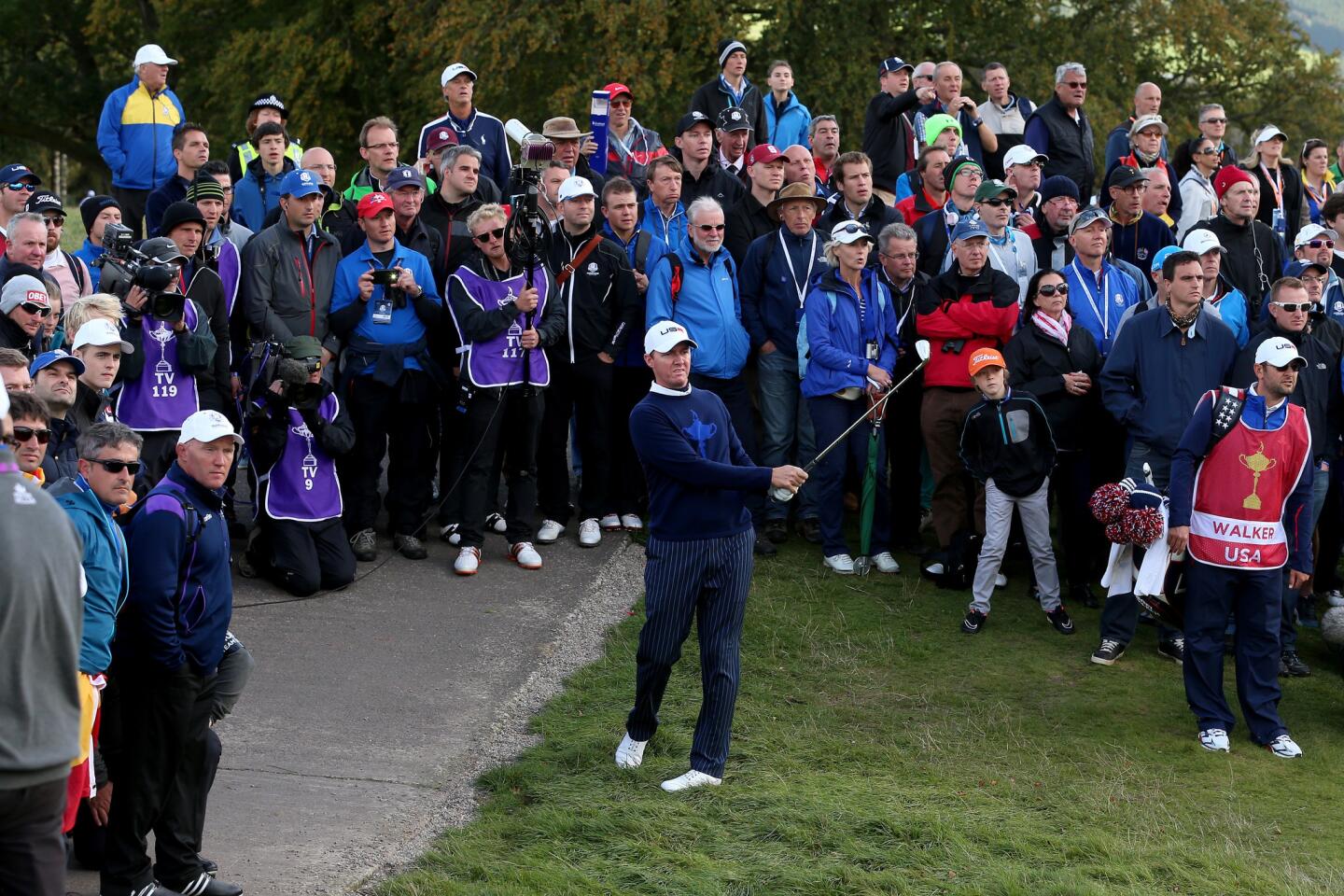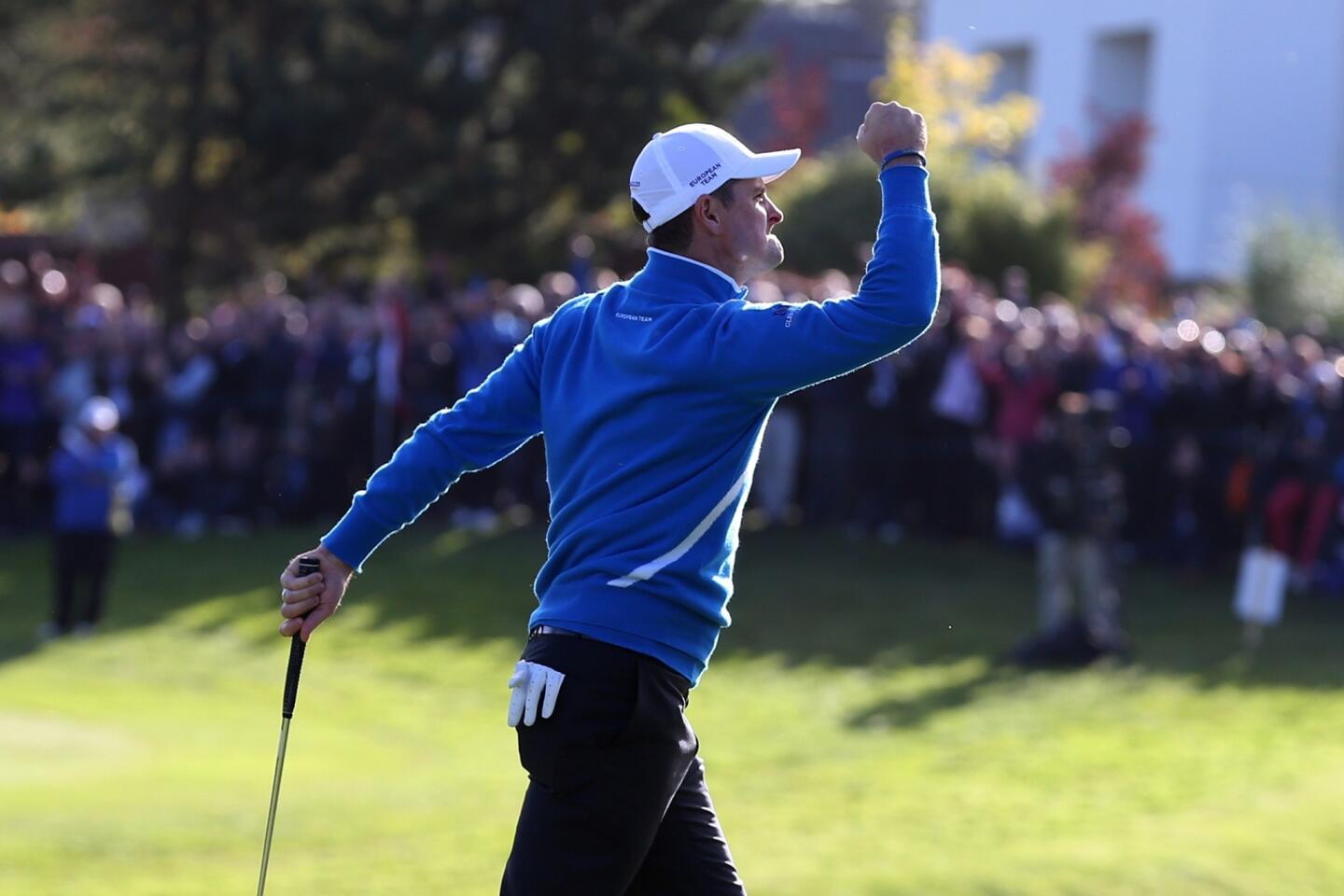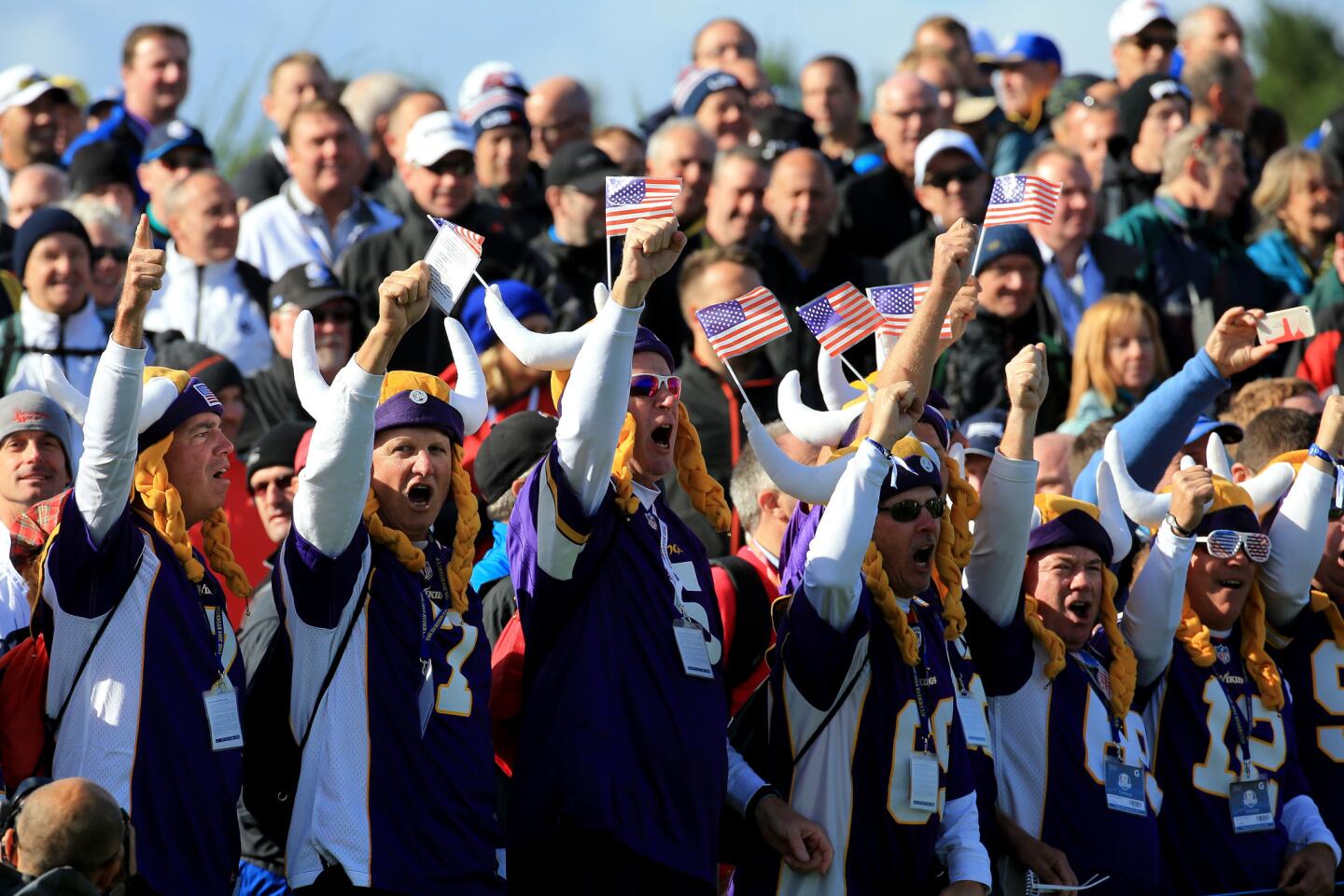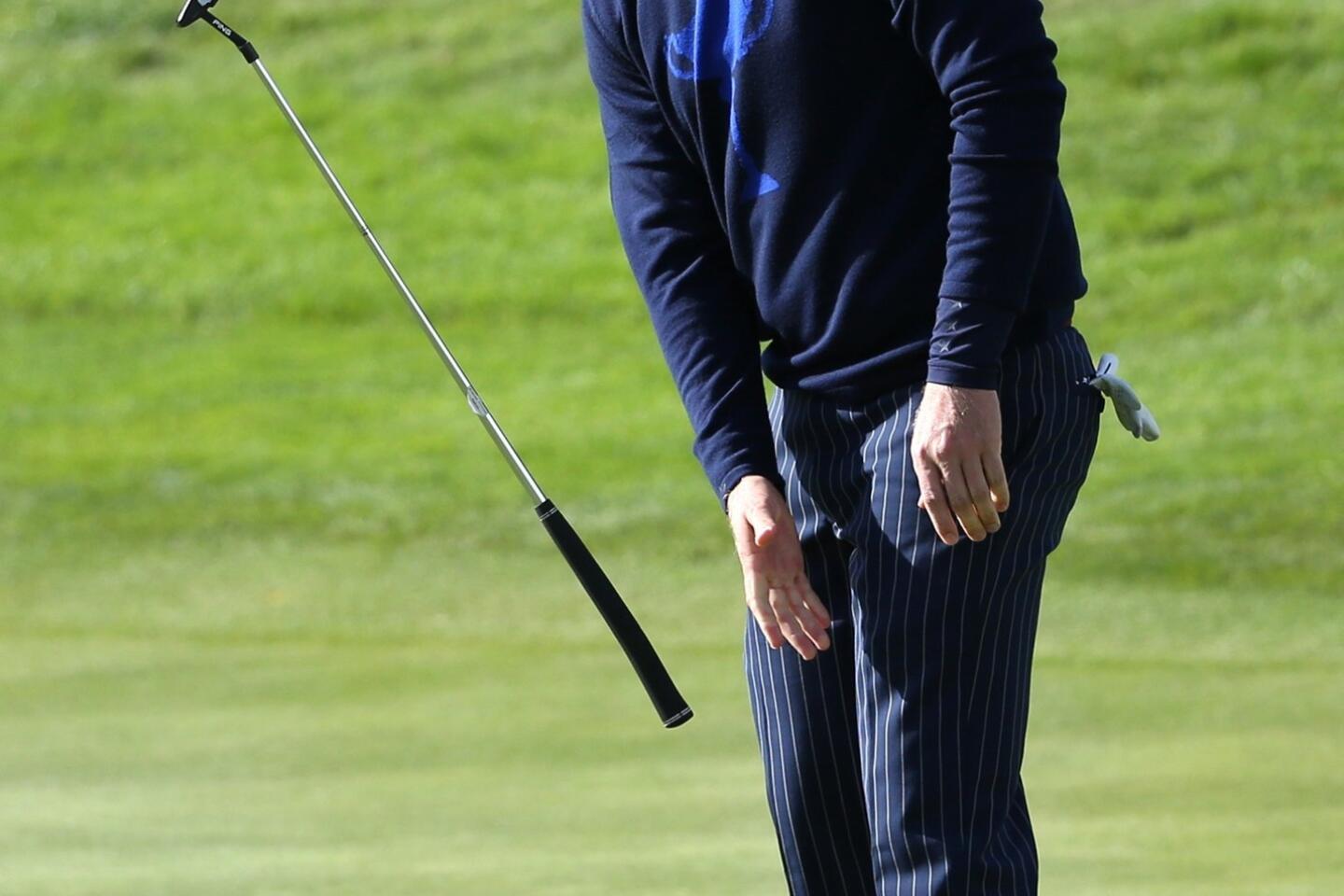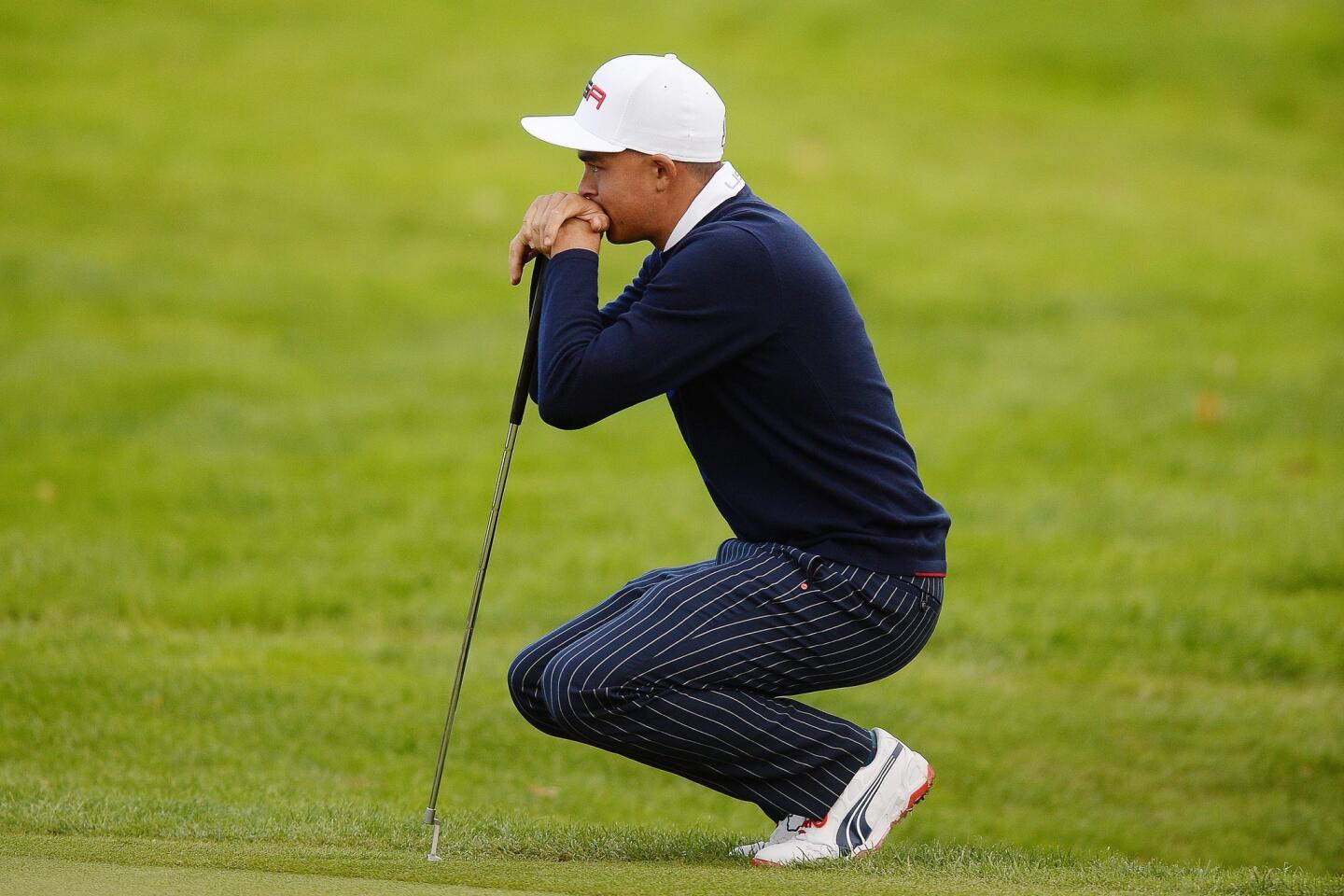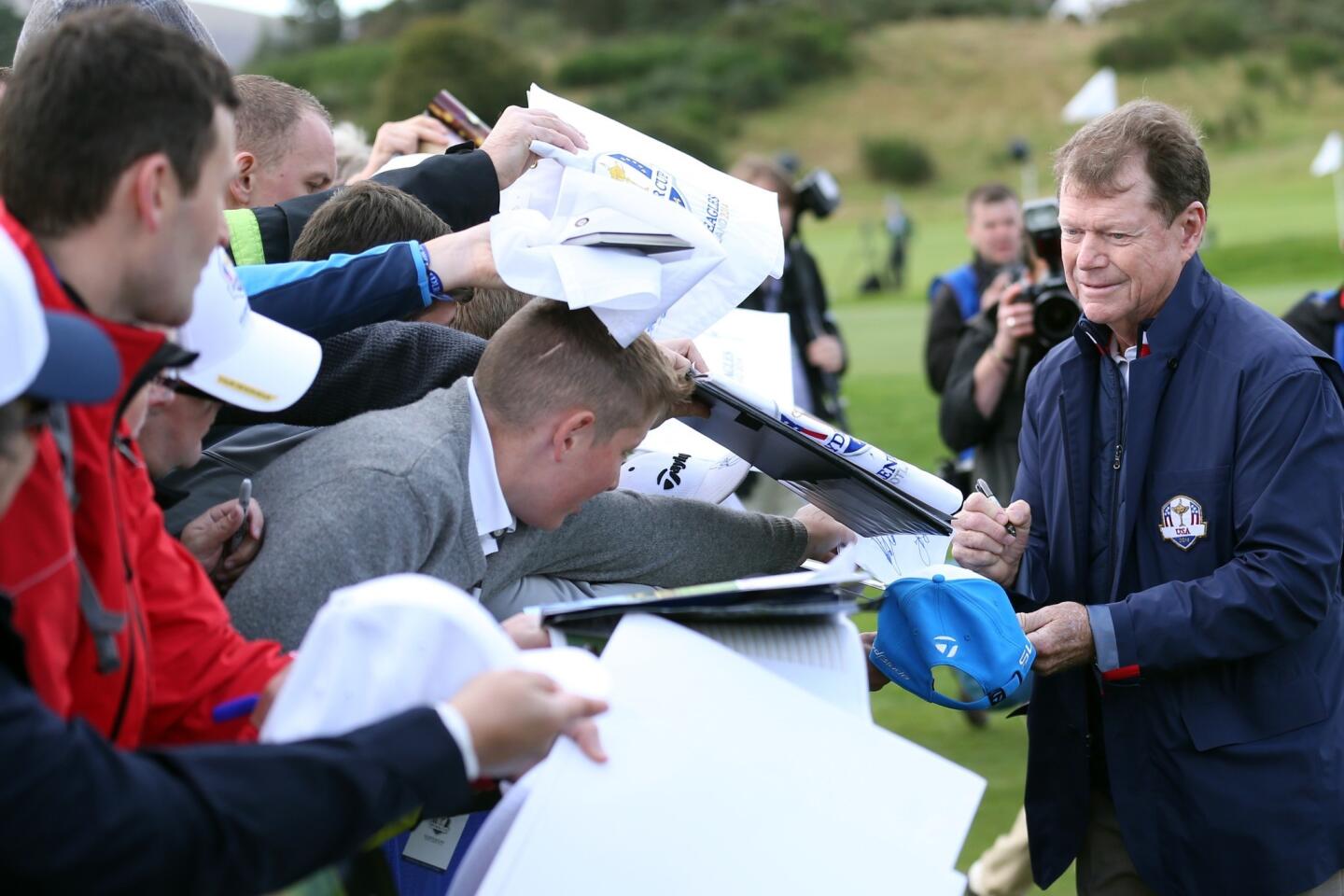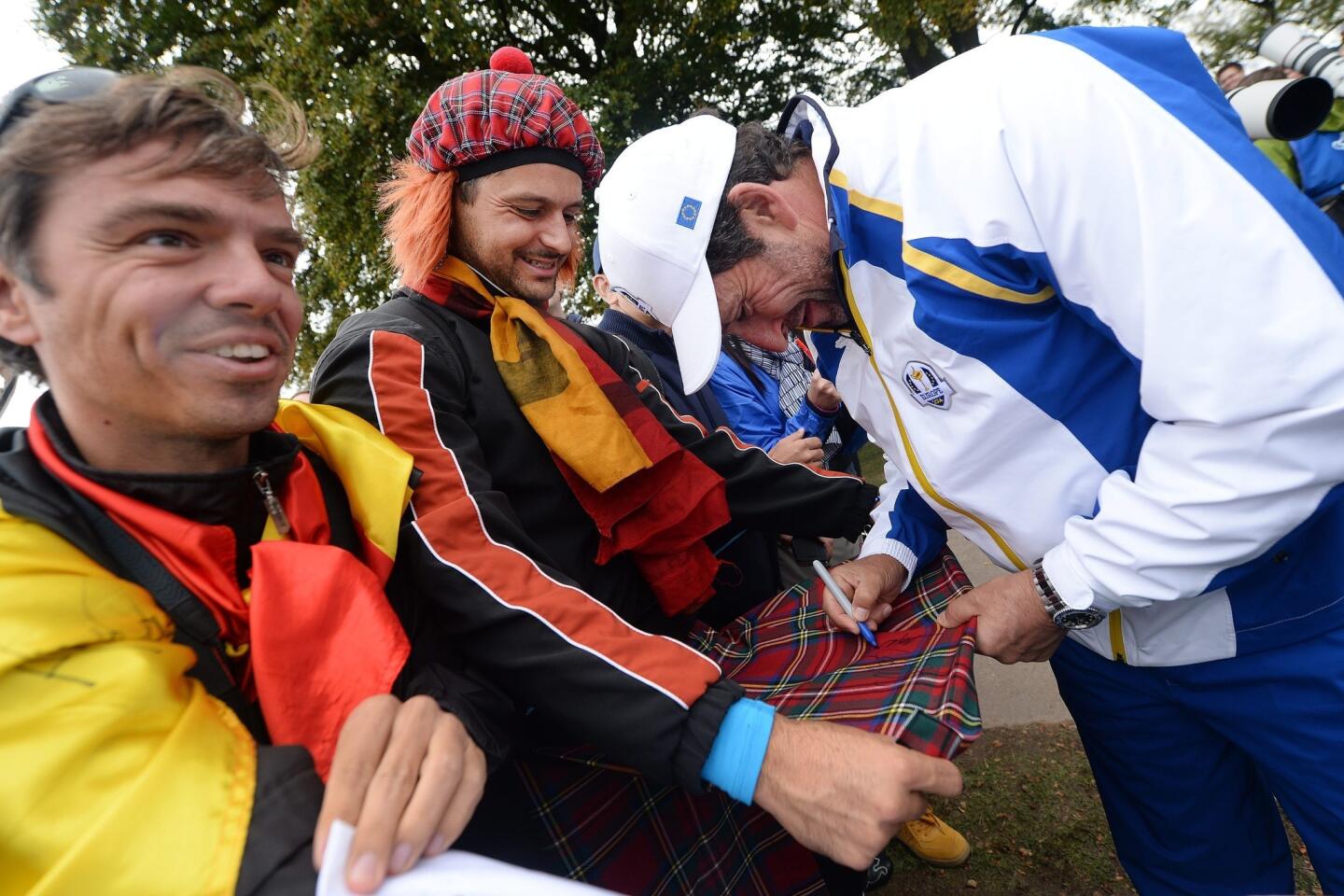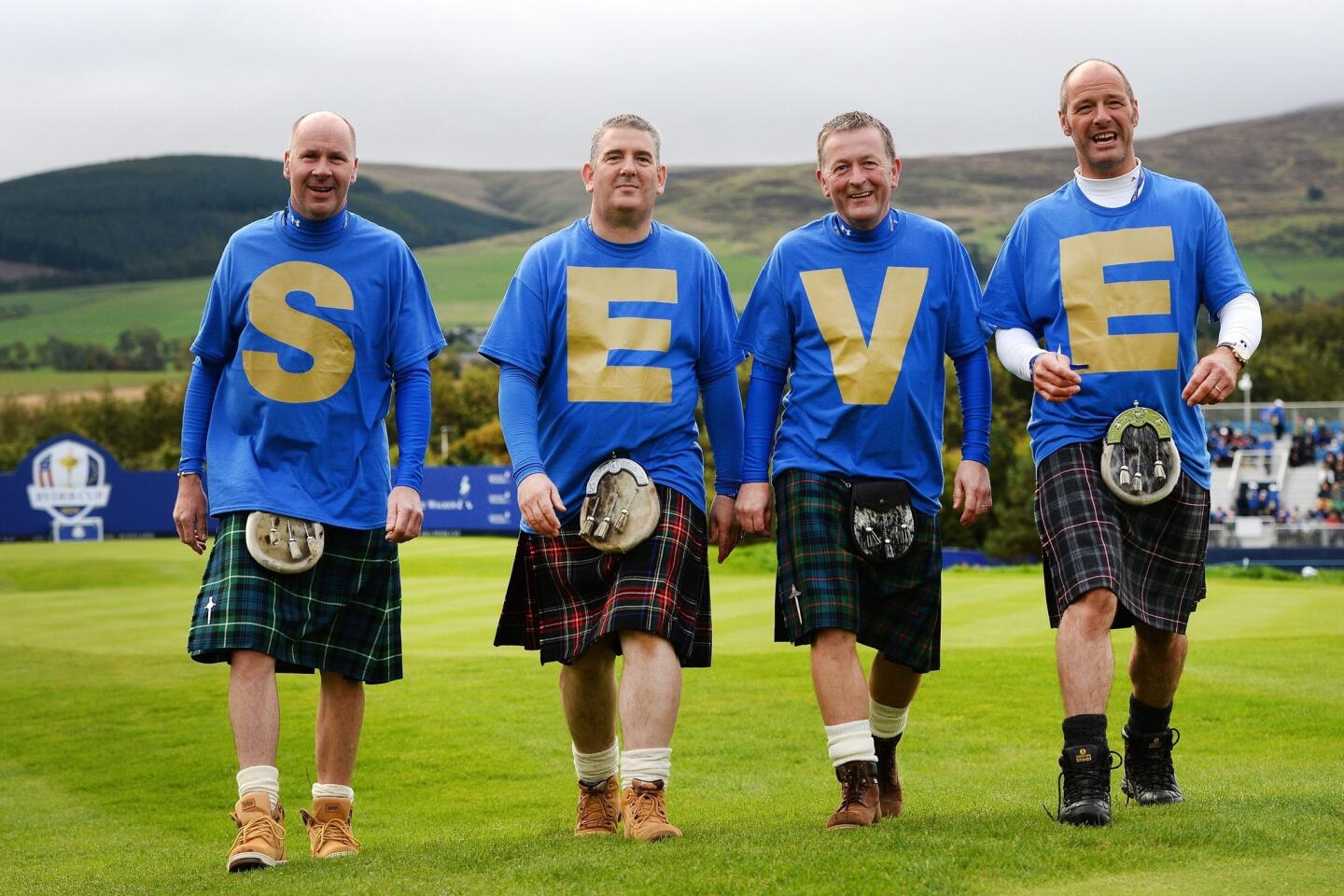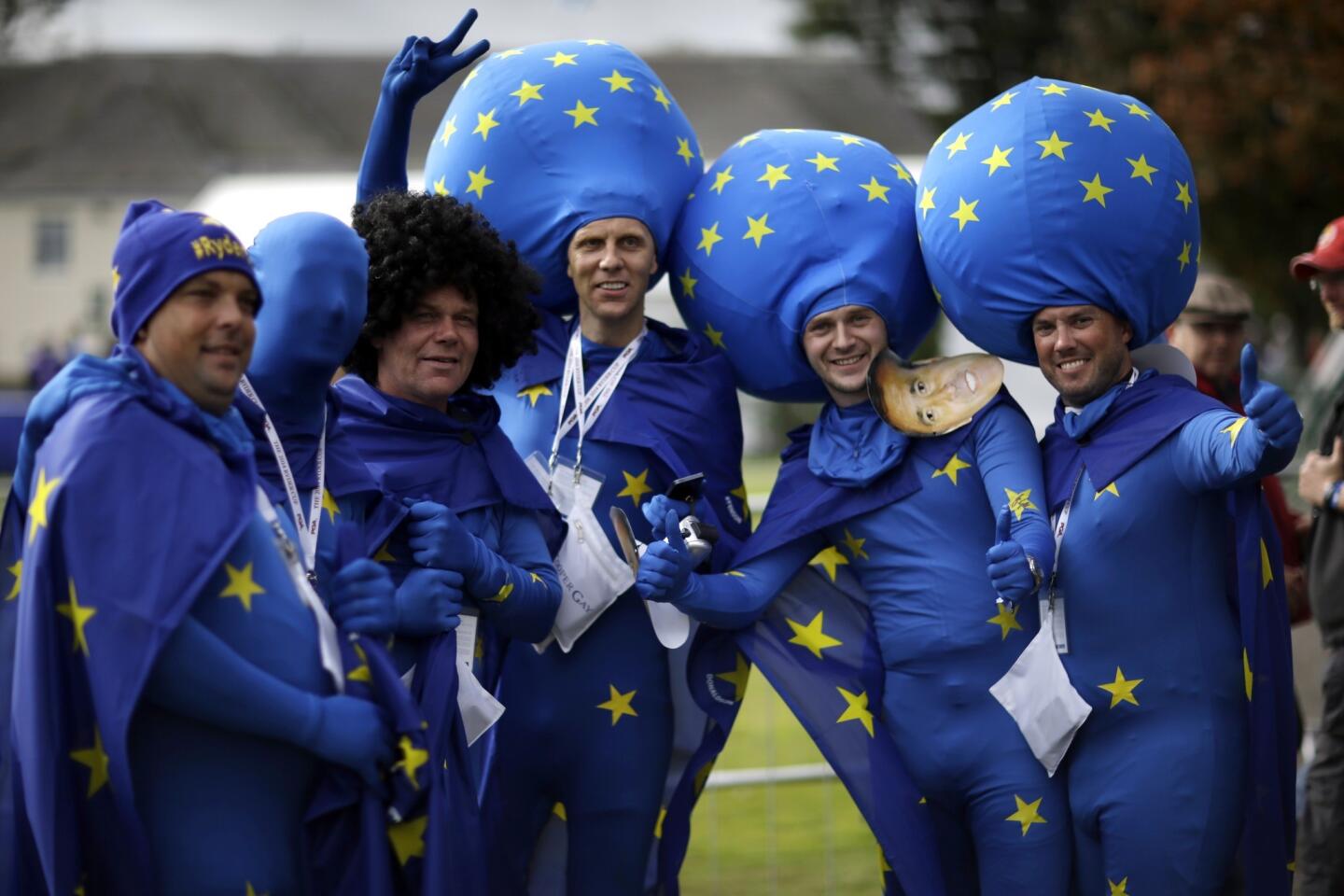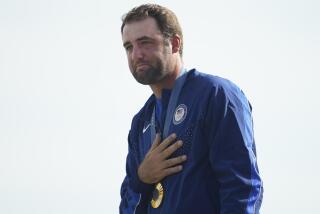Ryder Cup loss isn’t music to USA ears; Captain Tom Watson criticized
It was a sound the American players dreaded all weekend.
Thunderous roars echoing across the grounds at Gleneagles. Cheers giving way to countless voices in unison, the fans singing “Ole, Ole.”
Again and again, this raucous leitmotif shattered the tranquillity of the Scottish countryside, serving as a reminder that the U.S. team was headed for another loss to Europe at the Ryder Cup.
“They played better than we did,” Jim Furyk said. “And they whipped us.”
Sunday marked the eighth time in the last 10 tries that the Europeans have come away victorious. The final score of 16 1/2 to 11 1/2 ranked among their most lopsided wins ever.
“We deserve nothing less,” Rory McIlroy said as he celebrated with teammates. “We put so much hard work into this.”
It would have taken a historic comeback for the Americans to erase a four-point deficit in the final singles matches Sunday.
They could take some hope from the fact that Europe pulled off just such a feat two years ago in the so-called “Miracle at Medinah.” But there would be no magic this time.
The competition officially ended about 4:30 p.m. local time with Jamie Donaldson staring at 140 yards to the 15th green, perfect yardage for his wedge. Donaldson said, “I just had to put a good swing on it.”
His ball stuck within two feet of the pin and Keegan Bradley conceded the match, pushing Europe over the required 14 points.
Afterward, the Americans boiled over with frustration, some of it directed at themselves, much of it aimed at Captain Tom Watson.
Watson had previously come under criticism for his wild-card selections and for sticking with players who seemed to grow tired from too many matches.
On Sunday evening, Bradley expressed disappointment with the captain’s decision to bench him for all of Saturday. Phil Mickelson suggested the team should return to a scheme laid down by former captain Paul Azinger in 2008.
Guiding the U.S. to its only victory since 1999, Azinger divided the roster into pods, matching players with similar games and personalities.
“Unfortunately, we have strayed from a winning formula in ’08 for the last three Ryder Cups,” Mickelson said. “We need to consider maybe getting back to that formula.”
Sitting only a few seats away at the news conference, Watson replied: “I had a different philosophy than Paul. I decided not to go that way.”
By contrast, the European team lavished praise on its captain, Paul McGinley, whom Sergio Garcia called “amazing.”
McGinley had talked frequently about a “template” for success. And while he remained vague on details — after all, the Europeans want to continue their streak — his efforts involved poring over statistics and keeping in frequent contact with candidates for the team.
Players talked about his fretting over every detail, from the all-important pairings to the pictures that hung on the walls of the team room.
“No stone left unturned,” McIlroy said.
Coaching aside, it wasn’t difficult to see why the Europeans prevailed.
They dominated afternoon play, going undefeated in eight foursomes matches. They also showed an uncanny ability to pull ahead on the back nine.
As Ian Poulter put it: “The boys dug in deep.”
The Americans slipped in the other direction, often wilting down the stretch. And their highest-ranked players — Furyk, Bubba Watson and Matt Kuchar — went a combined 2-9.
That hurt even more in a year when Tiger Woods, Dustin Johnson and Jason Dufner were sidelined for various reasons.
If there was a bright spot for the U.S. team, it was the play of rookies Jordan Spieth, Patrick Reed and Jimmy Walker. Making their debut in the pressure cooker of Ryder Cup competition, they finished as the team’s top point-getters.
Therein might lie America’s best hope for breaking Europe’s stranglehold when the Ryder Cup reconvenes at Hazeltine in 2016.
“We went out there and were able to get the job done in the morning matches,” Spieth said. “Come Hazeltine, we’ll be ready to go.”
At the very least, playing on home soil will spare the Americans from listening to all those Europeans sing.
More to Read
Go beyond the scoreboard
Get the latest on L.A.'s teams in the daily Sports Report newsletter.
You may occasionally receive promotional content from the Los Angeles Times.

